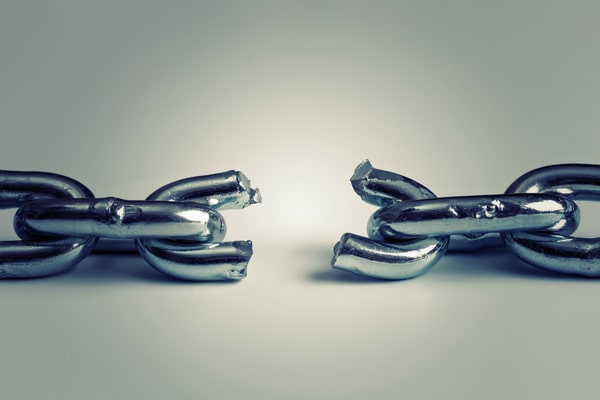
Learning to stop enabling destructive behavior may be difficult, but it’s vital for an addict’s successful recovery.
When someone you love is an addict, it is very easy to slip into a habit of enabling destructive behavior. This does not happen on purpose, of course. It is a natural thing to want to help someone you love.
The simple truth is, however, that your becoming an enabler does not help the addict. Rather, it has disastrous effects on both you and your loved one in terms of reinforcing negative behaviors for the addict and losing your own sense of self-respect.
Enabling Impedes Addiction Treatment
What does it mean to “enable an addict?” According to Huffington Post‘s “When You Enable an Addict You’re Not Helping, You’re Hurting,” a simple definition of an enabling behavior is “one that will keep the addiction going.”
In other words, an enabler is a person who helps facilitate a person’s addictions by shielding that person from the negative consequences of addictive behaviors. When an enabler intervenes to solve problems for an addict, he or she takes away the addict’s incentive to seek appropriate addiction treatment.
Enabling can occur on many levels. Some enabling behaviors are obvious, like financing a loved one’s drug habit directly. Others are less obvious, like purposefully ignoring signs of addiction in a loved one rather than pointing them out so the person can seek treatment.
How to Know When Kindness Turns Into Enabling Behavior
Since there are varying degrees of enabling, how can you determine whether the way you are handling your relationship with an addict is helping or enabling his or her addiction?
Psychology Today‘s “Are You Empowering or Enabling?” gives the following questions for reflection on whether your behavior harms rather than helps:
- Do you often ignore the addict’s unacceptable behavior?
- Do you find yourself resenting the responsibilities you take on?
- Do you consistently put aside your needs and desires in order to help the addict?
- Do you ever cover up for the addict’s mistakes?
- Do you consistently assign blame to someone else rather than to the addict when his or her behavior is really to blame?
- Do you continue to offer help even when it is not appreciated or acknowledged?
- Do you have trouble expressing your own emotions or asserting your own opinions?
Some additional questions to answer honestly are:
- Do you find yourself giving your addict second, third, and fourth chances?
- Is your need for avoiding confrontation clouding your judgment about the seriousness of your loved one’s addiction?
- Do you ever engage in risky behaviors with your addict?
Generally speaking, if you have to lie to yourself or to someone else to “help” an addict, you are probably enabling, rather than helping, the person suffering from addiction.
How to Stop Enabling Destructive Behavior and Start Helping
There are a number of things you can do to stop the cycle of enabling and start to make a positive impact on your loved one. First, you must accept that when you stop enabling the addict, uncomfortable situations will arise.

Putting a stop to enabling destructive behavior ultimately helps the addict.
However, think of it this way. Suppose your loved one had a terminal illness that could only be cured by a painful and costly medical procedure. You would willingly submit your loved one to that procedure to save his or her life, would you not?
Addiction, when unchecked, can be just as deadly. Accept that you and your loved one will have to experience discomfort in order to heal. Stop shielding your addict from the consequences of his or her choices. Refuse to clean up after your loved one, both literally and emotionally. Accept the reality that sooner or later, the addict will have to come face-to-face with the results of his or her addiction in order to have the insight to seek treatment in a drug/alcohol rehabilitation center.
The Huffington article plainly states: “In reality, addicts need their loved ones to make it as uncomfortable as possible for them to remain in their active addiction. If you have an addict in your life, this is actually the most loving thing you can do for them, because it holds them to a higher standard and encourages them to take responsibility for themselves.”
Help your addict by encouraging him or her to enter a drug rehab program and stick with the treatment plan. Provide support in the form of honesty about the ways that his or her behaviors impact your life together. Make it plain that you can no longer allow his or her abusive behaviors to continue in your own life, both for the addict’s benefit and for your own self-respect. That is love.
We’re Here to Help
To discover more ways to help an addict without crossing the boundary into enabling him or her, please contact Harris House. As specialists in the field of addiction recovery, we stand ready to provide you with the tools you need to successfully help your loved one battle addiction.&cid=44526″ alt=”” />







